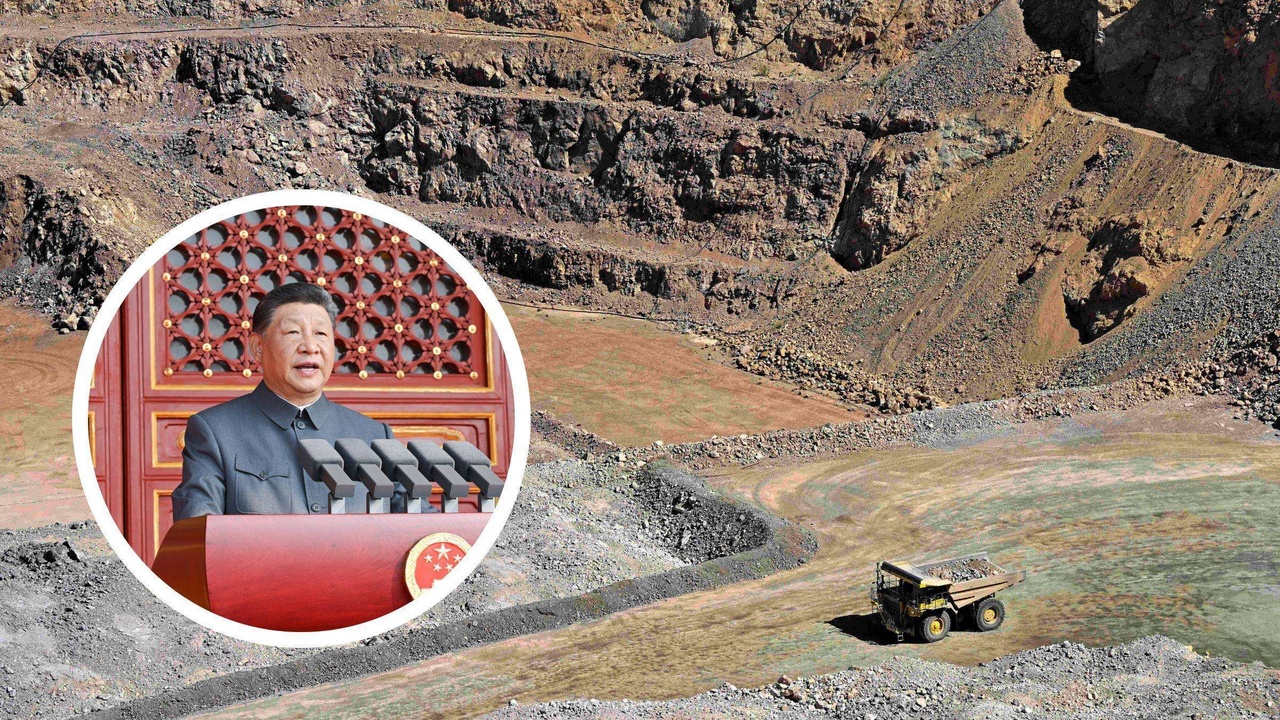From a McKinsey study that crossed my desk today:
👉🏻Seltene Earths as a backbone:
Rare earths are the backbone of the modern economy. Without them, electric motors, wind turbines, smartphones and satellites stand still. But Germany - and with it Europe - is dangerously dependent: 93 percent of rare earths come from China. A new McKinsey study warns that more than one million jobs are directly dependent on these raw materials. If Beijing were to stop its exports, a total of four million jobs and around 370 billion euros in economic output would be at risk - almost nine percent of Germany's gross domestic product.
"If China fails as a supplier, the economy comes to a standstill," says McKinsey partner Christian Hoffmann. Key sectors such as automotive engineering, energy technology and aerospace would be affected. Price increases would then be the least of the problems - it would simply be a question of whether production is still possible at all.
👉🏻China as a power factor
More than 90 percent of the world's rare earths are currently processed in China. The country controls the entire supply chain - from mining and chemical processing to the production of high-performance magnets. Beijing is increasingly using this dominance as geopolitical leverage: as recently as October, it once again tightened export controls on rare earth processing technologies. This means that the export of such processes is now only permitted with explicit approval - a clear signal to the West.
The economic consequences are already being felt. The germanium crisis at the end of 2024 showed how quickly a shortage can escalate: When China stopped exporting this metal, which is important for semiconductors and glass fibers, to the USA, deliveries to Europe also fell by 60 percent. In Germany, automotive and electronics manufacturers had to temporarily halt production - electric motors and sensors simply could no longer be built.
👉🏻Versäumte Strategies
The fact that Germany is so vulnerable is self-inflicted, emphasizes Cornelius Bähr from the German Economic Institute. Despite years of warnings, politicians have reacted too hesitantly. Although a KfW raw materials fund has been set up to develop new sources of supply, the projects have made little progress so far. Out of 50 interested parties, only two have reached the testing phase. "We are hoping for initial decisions by the end of the year," says the Ministry of Economic Affairs.
For McKinsey expert Hoffmann, this is not enough. He is calling for a comprehensive raw materials strategy to be developed jointly by industry, research, banks and mining companies.
👉🏻Europa must act
The EU has classified 34 raw materials as critical, including lithium, cobalt and all rare earths. Demand is growing - due to the energy transition, digitalization and armament. But alternatives to China are rare. Japan is considered a role model: the country has significantly reduced its dependency through a combination of diversification, recycling, material savings and research.
Hoffmann recommends that Germany follow similar paths - for example with joint purchasing consortia, raw materials trading houses and strategic stocks. Only those who keep an eye on the entire value chain - from the mine to the warehouse - can become independent in the long term.
👉🏻Zeit is running away
While Europe is still discussing concepts, China is tightening its control. The demand for rare earths is increasing and the pressure is growing. "A supply stop would be a shock for Germany as a business location," warns Hoffmann - and at the same time the result of years of inaction.
Neighboring countries would also be affected: Around 80,000 Austrian jobs depend on the German car industry. If it were to come to a standstill, this would have serious consequences for the entire region.
Against this backdrop, Donald Trump's tariff threat does not seem excessive. Judging by the fact that we hear little to no criticism from the EU or other countries, it seems to me that the measure, if not agreed, at least meets with approval.
Personally, I don't believe that the last word has been spoken here! Let's wait and see... 😉






